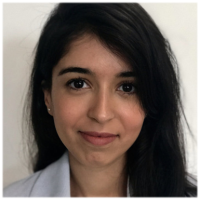
 Stuart Lyon on currently holds the position of AkzoNobel Chair in Corrosion Control, School of Materials, University of Manchester, United Kingdom (since 2012). He obtained is BA in metallurgy and materials science (1979), MA and PhD in solid-state electrochemical sensors (1983) from the University of Cambridge, United Kingdom, and his DSc for research excellence in atmospheric corrosion from the former University of Manchester Institute of Science and Technology (UMIST) (2002). Starting his scientific career at UMIST in 1983, he was appointed Professor in Corrosion Control at the School of Materials, University of Manchester in 2007, and Director of Research from 2013 to 2017.
Stuart Lyon on currently holds the position of AkzoNobel Chair in Corrosion Control, School of Materials, University of Manchester, United Kingdom (since 2012). He obtained is BA in metallurgy and materials science (1979), MA and PhD in solid-state electrochemical sensors (1983) from the University of Cambridge, United Kingdom, and his DSc for research excellence in atmospheric corrosion from the former University of Manchester Institute of Science and Technology (UMIST) (2002). Starting his scientific career at UMIST in 1983, he was appointed Professor in Corrosion Control at the School of Materials, University of Manchester in 2007, and Director of Research from 2013 to 2017.
Throughout his career, he has been actively engaged with professional institutes including the Institute of Corrosion (ICorr), of which he was the President from 2005 to 2007, member of the Corrosion Committee of the Institute of Materials Minerals and Mining (IOM3) and also Editor-in-Chief of Corrosion Science Engineering and Technology, a publication of IOM3 since 2006.
 Professor Maria Forsyth “FAA” (Fellow Australian Academy of Sciences), is the Director of ARC Industrial Transformation Training Centre in Energy Storage Technologies, StorEnergy, past ARC Laureate fellow and currently an Alfred Deakin Professorial Fellow at Deakin University and an Ikerbasque Visiting Professorial Fellow at University of the Basque Country. She is the Associate Director in the ARC Centre of Excellence in Electromaterials Science (ACES) and Deputy Director of the Institute for Frontier Materials (IFM) at Deakin University in Australia, where she leads the research effort in energy storage and corrosion science. Specifically, her work has focused on understanding the phenomenon of charge transport at metal/electrolyte interfaces and within novel electrolyte materials. Such materials have included a range of novel ionic liquids, polymer electrolytes and plastic crystals. This has provided a basis for understanding the behaviour of such materials, and thus moving towards overcoming the performance limitations, of applications ranging from novel fuel cell designs and battery storage to corrosion prevention technologies.
Professor Maria Forsyth “FAA” (Fellow Australian Academy of Sciences), is the Director of ARC Industrial Transformation Training Centre in Energy Storage Technologies, StorEnergy, past ARC Laureate fellow and currently an Alfred Deakin Professorial Fellow at Deakin University and an Ikerbasque Visiting Professorial Fellow at University of the Basque Country. She is the Associate Director in the ARC Centre of Excellence in Electromaterials Science (ACES) and Deputy Director of the Institute for Frontier Materials (IFM) at Deakin University in Australia, where she leads the research effort in energy storage and corrosion science. Specifically, her work has focused on understanding the phenomenon of charge transport at metal/electrolyte interfaces and within novel electrolyte materials. Such materials have included a range of novel ionic liquids, polymer electrolytes and plastic crystals. This has provided a basis for understanding the behaviour of such materials, and thus moving towards overcoming the performance limitations, of applications ranging from novel fuel cell designs and battery storage to corrosion prevention technologies.
Professor Forsyth leads collaborative projects in lithium and sodium battery technologies funded through recent Australian Research Council grants and with various industries. She is a co-author of over 550 journal and conference publications attracted more than 20000 citations. She has delivered more than 25 invited and plenary talks in the past 5 years. She was one of the team that delivered the ACOLA report “The Role of Energy Storage in Australia’s Future Energy Supply Mix” to the Chief Scientist in 2017. Professor Forsyth has served on several editorial boards and is currently senior editor for Journal of Physical Chemistry letters. She is the recipient of the Galileo Galilee award for her contributions to the Polymer Electrolyte and energy storage field, has received the Australian Corrosion Association Corrosion Medal and was awarded to The Victorian Prize for Science and Innovation (VESKI) in 2017.
Young EFC proposal
 Carol is a post-doctorate research associate at the University of Virginia where she specializes in developing Cr-free coatings. She has worked on multiple coatings projects for TATA Steel, PPG Industries and Axalta Coating Systems and has enjoyed contributing to the corrosion community’s on-going battle with understanding the corrosion mechanism of magnesium and its alloys. She teaches an undergraduate “Corrosion and Batteries” course and previously spent time teaching at Harbin Engineering University, China. She gained her doctorate at Swansea University in the beautiful South Wales, UK. Her favourite things, besides saving metals from rusting, are running and climbing mountains!
Carol is a post-doctorate research associate at the University of Virginia where she specializes in developing Cr-free coatings. She has worked on multiple coatings projects for TATA Steel, PPG Industries and Axalta Coating Systems and has enjoyed contributing to the corrosion community’s on-going battle with understanding the corrosion mechanism of magnesium and its alloys. She teaches an undergraduate “Corrosion and Batteries” course and previously spent time teaching at Harbin Engineering University, China. She gained her doctorate at Swansea University in the beautiful South Wales, UK. Her favourite things, besides saving metals from rusting, are running and climbing mountains!
Young EFC proposal
 Oumaïma Gharbi is an adjunct lecturer at Sorbonne University, Paris, France. Dr. Gharbi’s research is focused on materials durability, including the corrosion of 2xxx and 7xxx series aluminium alloys, electrochemistry, and surface chemistry. She carried out her PhD research at the IRCP- Chimie Paristech and was awarded her doctorate in 2016 from Pierre and Marie Curie University, Paris, France. Her research highlights include the application of novel electrochemical methods, coupled with electron microscopy, to deterministically reveal corrosion mechanisms of complex alloys. Dr. Gharbi joined Monash University, Australia, in 2017 as a postdoctoral research fellow, where she studied the durability of additively manufactured Al-alloys. Since September 2018, she joined Sorbonne University as an adjunct lecturer, where she is applying her expertise on the durability of light metals in Ionic Liquids.
Oumaïma Gharbi is an adjunct lecturer at Sorbonne University, Paris, France. Dr. Gharbi’s research is focused on materials durability, including the corrosion of 2xxx and 7xxx series aluminium alloys, electrochemistry, and surface chemistry. She carried out her PhD research at the IRCP- Chimie Paristech and was awarded her doctorate in 2016 from Pierre and Marie Curie University, Paris, France. Her research highlights include the application of novel electrochemical methods, coupled with electron microscopy, to deterministically reveal corrosion mechanisms of complex alloys. Dr. Gharbi joined Monash University, Australia, in 2017 as a postdoctoral research fellow, where she studied the durability of additively manufactured Al-alloys. Since September 2018, she joined Sorbonne University as an adjunct lecturer, where she is applying her expertise on the durability of light metals in Ionic Liquids.